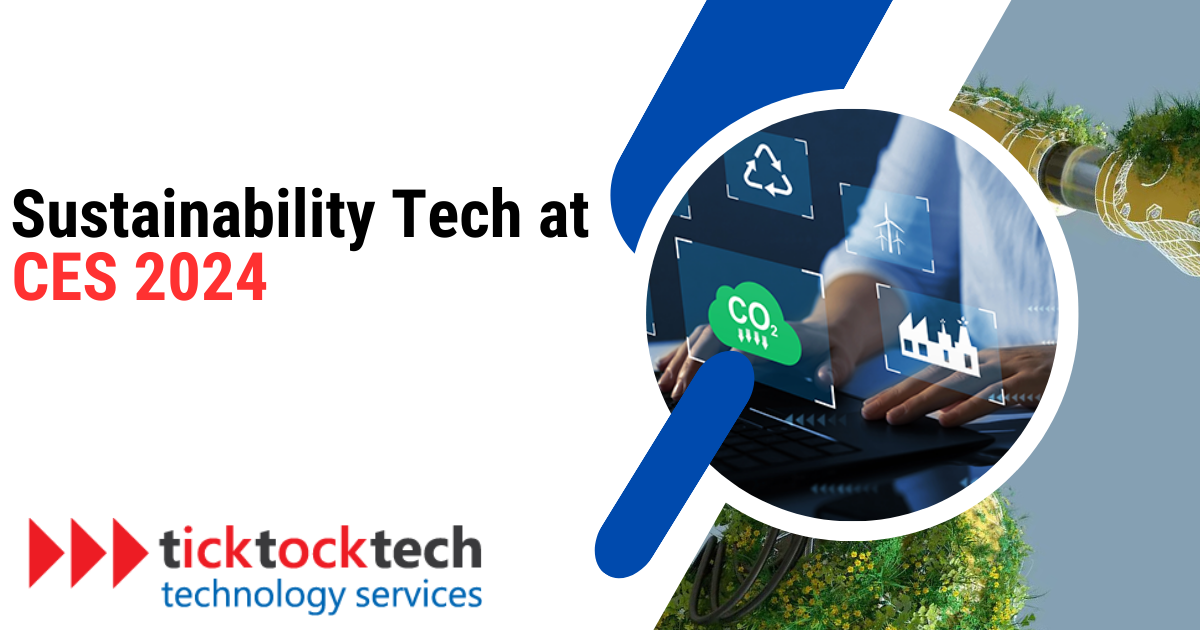Tech companies are facing increasing pressure to adopt more sustainability strategies. The recent CES 2024 showcased several exciting technologies and new devices, featuring all the innovative products you could imagine. However, alongside these innovations, the event highlighted the growing presence of sustainability-focused discussions, with a particular focus on the environmental impact of these advanced gadgets.
Consumer Demand for Sustainable Tech Practices
Consumers are now more concerned than ever about the materials used in their products. This shift in mindset drives purchasing decisions in commercial sectors, promoting sustainability and reducing electronic waste.
Recognizing the Importance of Tech Sustainability
This year, CES 2024 witnessed a significant shift towards prioritizing the components used in product manufacturing. Rather than solely relying on green energy sources or carbon offsets, companies are now embracing the integration of recycled materials within their devices and displays. This transition marks a crucial step forward in reducing emissions and combating climate change.
The tech industry is increasingly recognizing the significance of sustainability. Whether driven by the necessity to account for the environmental consequences of producing new technologies or responding to growing public awareness, companies can no longer ignore their own contributions to climate change.
User Empowerment and Extended Device Lifespan
During CES 2024, Google announced its support for the Right to Repair movement, emphasizing users’ rights to fix their own devices. With the provision of tools, parts, and repair manuals, especially for Pixel phone owners, device manufacturers are endorsing consumers’ efforts to extend device longevity. This will contribute to a decrease in electronic waste and its harmful environmental impact.
Additionally, more companies have pledged to integrate recycled materials into their products as a means of reducing emissions and waste. By providing a second life for components that would otherwise end up in landfills, including metals and rare earth materials, these initiatives contribute to combating climate change. Notable contributors among tech companies include Lenovo, LG, Panasonic, Samsung, and Sony, who all signed the Consumer Technology Circularity Initiative at CES 2024.
The Drive Towards Sustainable Consumer Electronics
According to the International Data Company (IDC), over 70% of surveyed companies have transitioned from discussions to concrete action in achieving measurable sustainability targets. These companies have experienced cost-effective outcomes by reporting environmental impact data and implementing sustainable practices. Their primary focus now is to stand out from competitors through innovative sustainability approaches. IT professionals, who witness the wide-ranging effects of product replacements, are drawn to the use of sustainable materials and equipment recycling. As consumer awareness grows regarding the environmental impact of frequent device upgrades, sustainability will become a key differentiator among premium smartphone brands, as stated by Forrester Vice President and Principal Analyst, Thomas Husson.
Top Sustainability Tech Practices
Companies are now moving towards incorporating sustainability into their products. Sony, committed to reducing its environmental impact, aims to decrease its use of virgin plastic by using more recycled plastics. Razer, a gaming and computing accessories company, has also embraced sustainability by incorporating recycled materials into its products and seeking reduced environmental impact certification. Samsung, while previously committing to greater use of recycled materials in its product packaging, now focuses on incorporating recycled ocean plastics into its phone and TV components. Also, Dell has been using recycled materials since 2007 and is committed to expanding its use of recycled and renewable materials.
Dell’s ongoing Concept Luna project, now in its third year, brings exciting news for sustainability. Using smart predictions, AI, and machine learning, Dell plans to predict and solve component issues. Furthermore, Dell has joined forces with a robotics company to use AI and camera tech to check if old components can be recovered, repaired, or recycled. Dell has also upgraded its augmented reality app to help users with personal device repairs, making it easier for consumers to use their products for a long time.
Beyond gadget-focused sustainability efforts, tech companies are also revolutionizing their energy efficiency practices. Semiconductor manufacturer, AMD, is making significant contributions to energy conservation by striving to make its server CPUs and AI accelerator CPUs 30 times more energy-efficient by 2025. This goal aims to tackle the energy consumption associated with large-scale computing.

